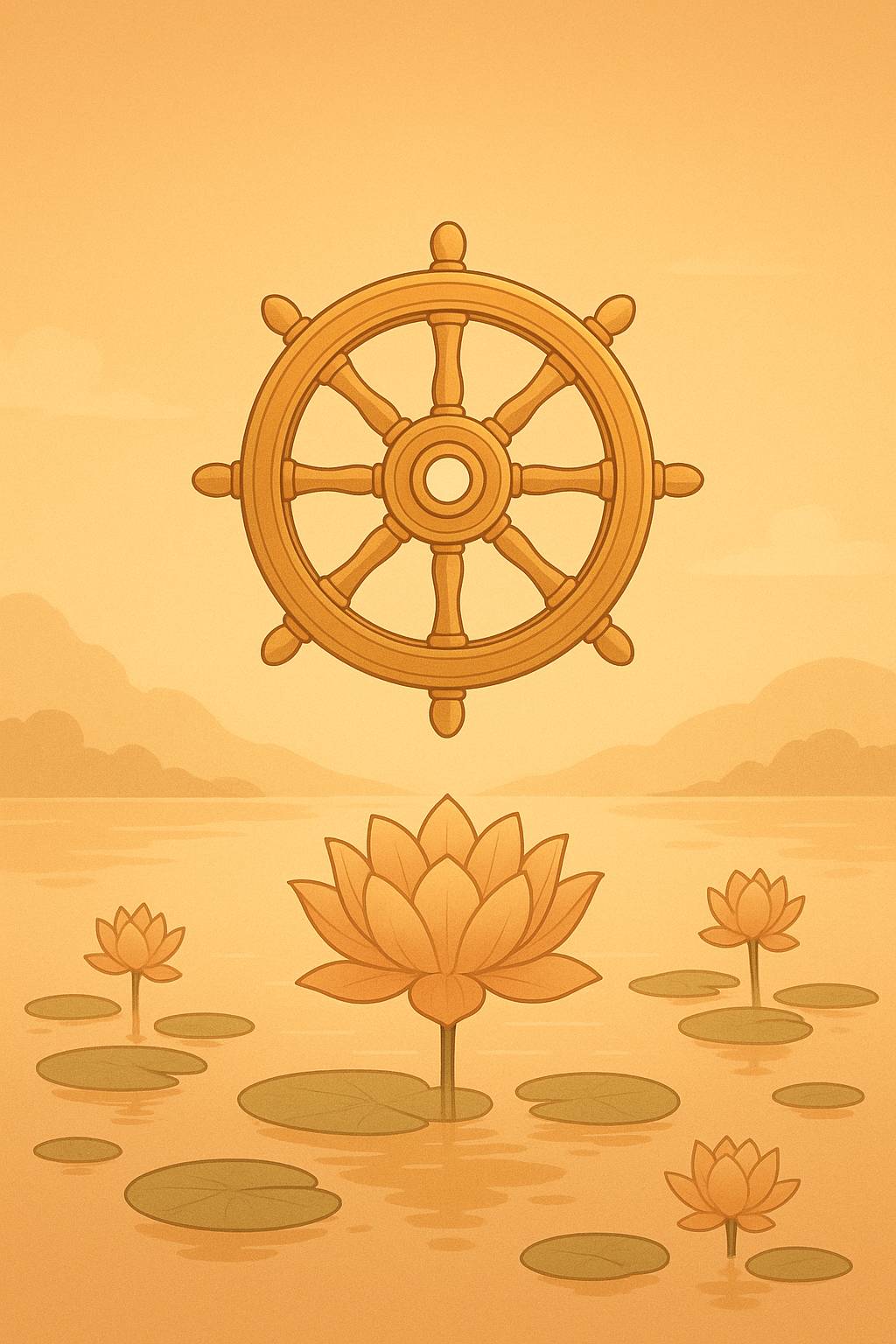Destiny — According to Buddhism
Destiny, in the Buddhist view, is not a script written by a divine author — it is a stream of causes and conditions flowing through time.
What we call fate is, to the awakened mind, the visible ripple of karma — the unfolding result of previous actions, intentions, and attachments.
1. The Rejection of Predetermination
Buddhism rejects the notion of a fixed fate.
Unlike deterministic philosophies that claim our path is unchangeable, the Buddha taught that everything arises dependently — in Pali, paticca-samuppāda, or “dependent origination.”
Nothing exists on its own; all phenomena are conditioned by what came before.
“When this exists, that comes to be;
with the arising of this, that arises.” — Samyutta Nikaya 12.61
Destiny, therefore, is not a cosmic decree — it is conditional.
Change one condition, and the whole future changes.
2. Karma as Causality, Not Punishment
The most misunderstood concept in Buddhism is karma.
Karma is not cosmic retribution. It is simply cause and effect extended through moral and mental dimensions.
Every thought, word, and action plants a seed.
Those seeds ripen when the conditions are right.
In this sense, your “destiny” is the sum of your tendencies — the habits of intention that shape how you meet each moment.
Karma does not bind you; it teaches you.
Every experience is feedback from the universe, showing the mind its own reflection.
3. Rebirth and the Continuum of Consciousness
In the metaphysical view of Buddhism, rebirth is the continuation of this karmic stream.
But unlike the notion of an eternal soul (ātman), Buddhism teaches anattā — “no-self.”
There is no unchanging entity that transmigrates between lives; rather, the continuity lies in causality itself.
Imagine a flame passing from one candle to another — the flame continues, yet it is not the same flame.
So too with destiny: it is a chain of causation, not a preserved identity.
Thus, destiny in Buddhism is impersonal.
It belongs not to “you,” but to the process of becoming.
4. The Wheel of Samsara
The image of the Wheel of Life (Bhavachakra) captures the Buddhist sense of destiny — a cyclical pattern of birth, death, and rebirth.
Ignorance fuels craving; craving fuels becoming; becoming gives rise to suffering.
Around and around it turns — until wisdom intervenes.
The Buddha’s teaching is not to escape the world, but to see through its mechanics.
When one recognises the impermanence (anicca) of all things, and the emptiness (śūnyatā) of self, the wheel ceases to bind.
To awaken (bodhi) is to step off the wheel.
5. The Middle Path and Freedom Within Causality
If everything is conditioned, is there any freedom at all?
The Buddha’s answer is paradoxical yet profound:
Freedom arises within causality, not outside it.
By cultivating mindfulness, right effort, and compassion, one transforms the conditions that give rise to suffering.
In doing so, one rewrites the karmic script — not through resistance, but through understanding.
Destiny, then, is not conquered but clarified.
To act without attachment, to perceive without distortion, is to dwell in the still centre of the wheel — the Middle Path, where destiny loses its hold.
6. The Metaphysics of Awakening
At its deepest level, Buddhist metaphysics treats destiny as an illusion born of duality — the false separation of subject and object, doer and deed.
When this duality dissolves, the concept of destiny itself collapses.
There is no “me” to be destined, and no “future” to be reached — only suchness (tathatā), the unconditioned reality of the present moment.
“Within the light of wisdom, nothing is bound, nothing is freed.”
— Prajñāpāramitā Sutra
In this light, destiny is not something to fulfil — it is something to awaken from.
Final Insight: The Wheel Within Stillness
In Buddhism, destiny is not linear but circular, not a prophecy but a process.
It is the turning of the Wheel — yet at the hub of that wheel lies perfect stillness.
To awaken is to recognise that you have always been the stillness itself — the unmoved witness of the moving world.

Leave a Reply